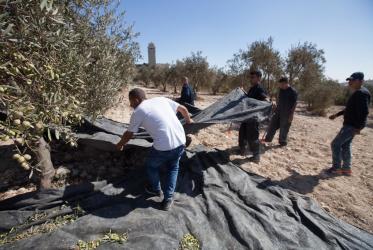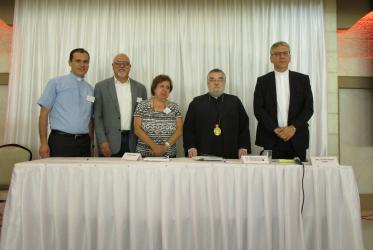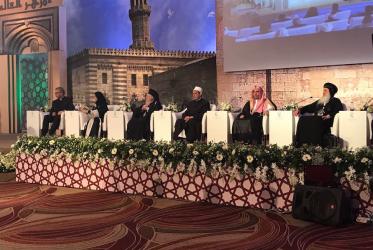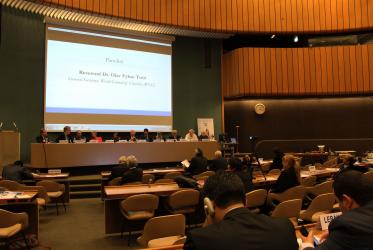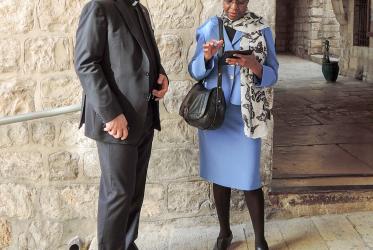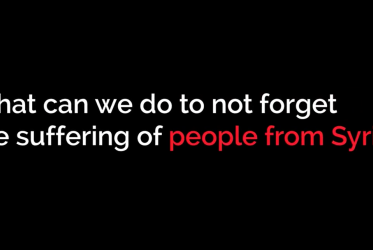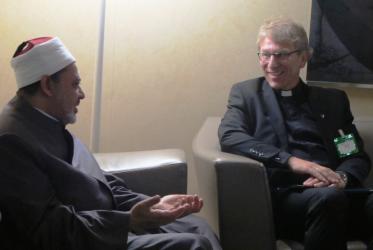Displaying 41 - 60 of 80
18 December 2017
Holy Land tourism goes beyond traditional paths
05 October 2017
Guided by faith, hope and endurance
02 October 2017
Holy work for the Holy Land
29 March 2017
Islam and Christianity: finding the common ground
16 March 2017
In Lebanon, refugees face hardship - but find hope
16 March 2017
Praying for one another, even when we disagree
02 March 2017
Children from Bethlehem in key role, as WCC shares Christmas message
22 December 2016
Dialogue flourishes between WCC, Muslim Council of Elders
30 September 2016
WCC general secretary reflects on peace in Palestine and Israel
20 September 2016
Facilitating peace with passion
26 July 2016


